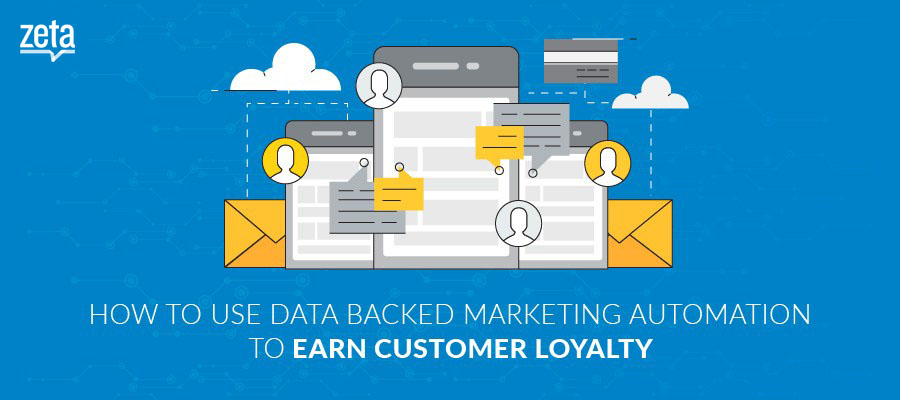
How to Use Data Backed Marketing Automation to Earn Customer Loyalty
There was a time when most businesses just focused on customer acquisition in their marketing efforts. Brand loyalty was just a byproduct of the scheme of things. Today’s businesses however have to deal with a lot more competition and customers who are always ready to switch to a better brand; a brand that gives them products and services of better quality. That’s why, customer loyalty marketing has become an important piece of the marketing puzzle these days. Maintaining a steady customer base has become more important than ever to survive in a fiercely competitive marketplace.
Providing offers and discounts to customers is arguably the easiest way to build customer loyalty. But that’s not enough to convince the savvy customers of the internet age. They know that there is always a better bargain around just a click away. Brands need to do a lot more to keep them hooked and engaged. And the key to building such a strong engagement with the customers is data. Data that can tell the brand a lot more than just the name, email and location of the customers. When the marketing efforts are tuned to collect vital data signals, marketing automation can kick in and do wonders. In this article we’re going to look at how marketing automation can help brands earn the much needed brand loyalty from its customers:
The Importance of Customer Retention
If you have a great product/service, customers will develop a brand loyalty on their own. That’s the belief that most people had before the marketing world started to take customer retention strategies seriously. While it is absolutely true that loyalty follows great products and services; one should also remember that this only works in short term today. The market is so competitive that your customers will eventually find a brand that is better or cheaper than you. The only way to build brand loyalty is to make them feel that you care about them and listen to them; apart from providing a great product/service.
According to a research conducted by Harvard Business School, increasing customer retention rates by 5% increases the overall profits of a business by 25% to 95%! No wonder data oriented marketers take customer retention seriously! It has become an important metric to measure the effectiveness of their marketing strategies. Most companies however measure the opposite of retention rate, i.e., churn rate (Percentage of customers who decide to quit using the products/services of the company). Both of these metrics have gained high importance even for investors while they study the viability of a business.

How Marketing Automation Helps
Marketing automation allows businesses to better understand their customers’ preferences and desires. When marketers use this information strategically, it translates into a stronger relationship between the customers and the brand. Let’s discuss this in detail:
Event Based Automation
Imagine this scenario: You’re planning a trip to Agra to catch a glimpse of the Taj Mahal. You want to check out multiple travel deals and booking sites before you make up your mind about a place to stay. You search Airbnb, Trivago, Kayak and a bunch of other booking sites but still aren’t sure. After a while you’re tired and are in no mood to do all the searching again. But you still want to book your stay because the travel is already planned.
Just when you’re about to throw up your hands in exasperation, you get an email notification! Airbnb has sent you a pick of places that you can choose from in Agra! Wouldn’t that be awesome?! That’s the power of event based automation. You realize that the brand that you wanted to try out actually knows your needs and is ready to make the experience smoother for you.
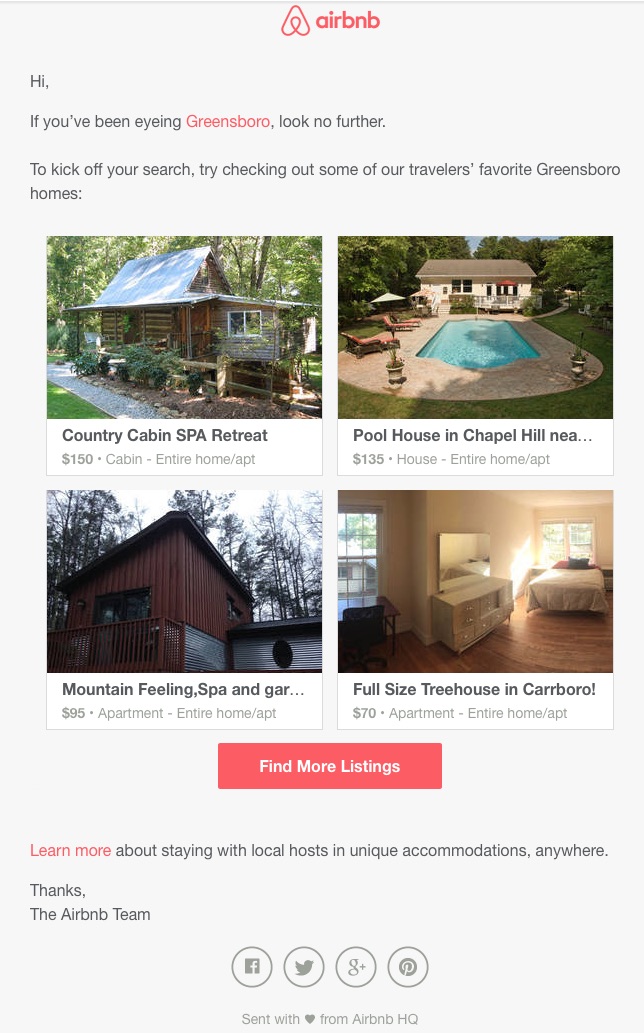
Sending cart abandonment emails, discount emails based on your previous purchase are a couple of other examples for event based automation aimed at building brand loyalty.
Useful read: Marketing Automation Mistakes that You Should Avoid
Customer Data is a Goldmine
When thinking about data signals related to automation, marketers usually think about activities and behaviors of the customers. They forget that some of the most basic information that the customer provides during his/her interaction with different touch points of the brand can also be really useful. Check out how popular fashion brand Macy’s does it effectively, by sending out emails to customers on their birthdays:
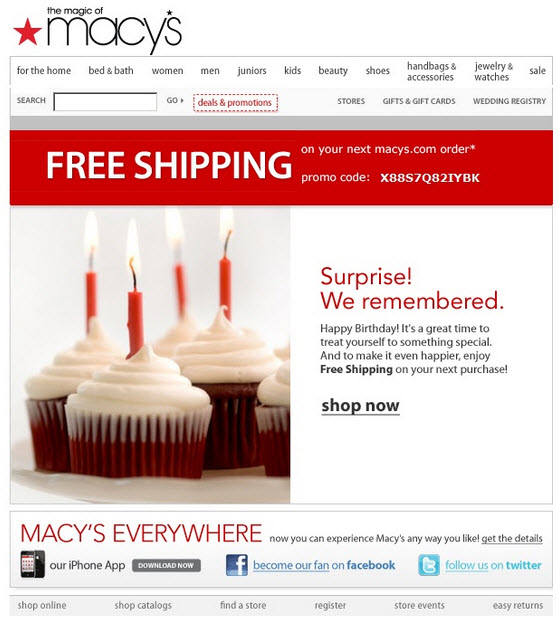
Likes and dislikes of the customers
It’s a hot day and one of your close friends comes to visit your place. When you’re busy cursing the temperature, he takes out a pack of your favourite beer and gives it to you! Won’t you feel ecstatic? The fact that he went out of his way to buy a pack of beer proves that he is your friend. But the fact that he knew which brand of beer to choose, proves that he is one of your closer friends who knows what your likes and dislikes are.
That’s exactly how it works in a customer-brand relationship as well. When the brand sends messages or emails to the customer about things that he/she cares about, the customer feels closer to the brand. Internet’s foremost fact checking website Snopes does it really well with its customized newsletters. All of its emails are one-to-one personalized. The articles mentioned in the email are all placed there based on the reader’s’ topic preferences.
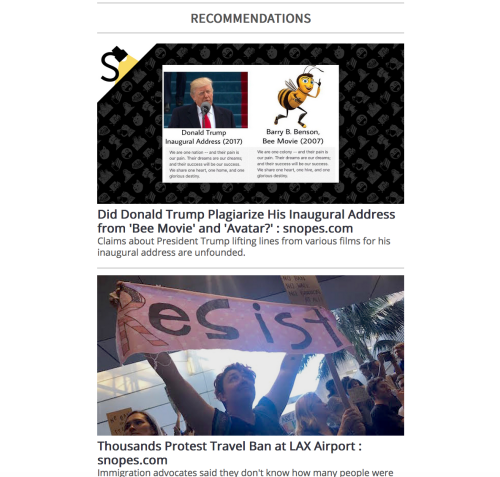
Check out this interesting article to know how Snopes does it.
Customer opinion matters the most
Feedback emails is one of the most effective forms of communication that a brand can send to its customers during their lifecycle. Feedback emails not only give valuable insights that can help improve the products/services, they also show your customers that you genuinely care about doing things better. And that has a major impact on brand loyalty. Gifting platform Artifact Uprising does it really well in this feedback email:
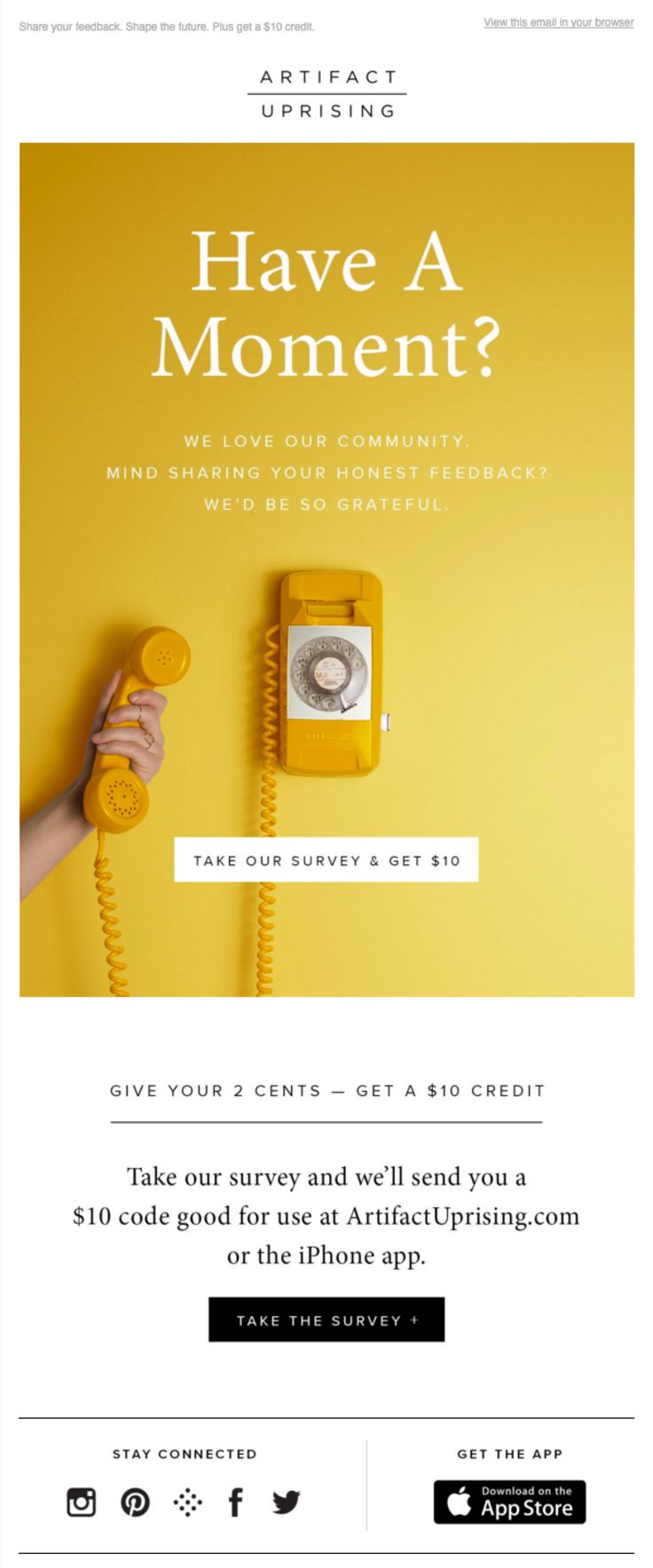
But care should be taken to ensure that feedback emails are only sent to customers who have tried the products/services for a good amount of time. There is no point sending a feedback email to a customer about a phone that was bought just one day ago! Marketing automation can help you set the feedback emails to go exactly when they’re supposed to go.
Wrapping it up
Have you tried leveraging Marketing Automation and user data to build brand loyalty in your customers? If you have, how was the experience? Please share it with us in the comments below. You can also share some of the other ways of building customer loyalty to help us enhance and improve this article.


